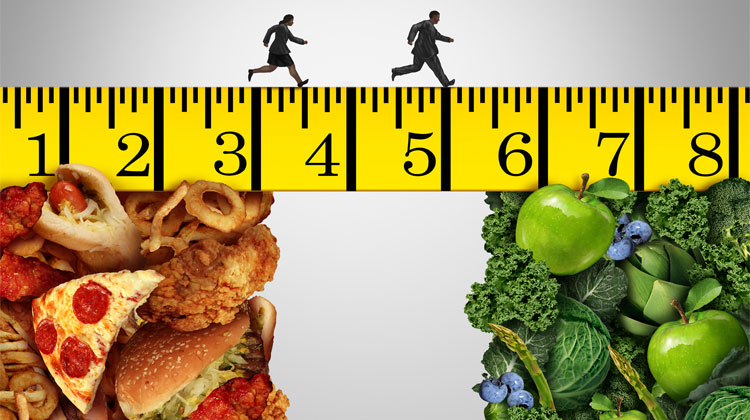Cholesterol is a waxy, fat-like substance found in every cell of the body. It is essential for synthesis of some hormones, Vitamin D and enzymes which helps in the digestion of food. Our human body, synthesises all the required cholesterol. However, it is also present in some of the food products we take. Cholesterol travels in our bloodstream in small packages called lipoproteins, which consist of fat (lipid) inside and proteins outside.
Total human cholesterol is made of three parts:
Good (HDL), Bad (LDL) cholesterol and VLDL or triglycerides. Having healthy levels of each type of cholesterol is important.
- LDL is cholesterol packaged in low-density lipoprotein which is also called as ‘bad cholesterol’ as it carries most of the cholesterol in blood and excess of which can lead to plaque build-up that can further cause blockage in arteries.
- HDL- high-density lipoprotein is considered to be a good cholesterol as it helps in transporting cholesterol from other parts of body to liver where it is removed from the body. Therefore, HDL helps in preventing cholesterol from accumulating in arteries.
- The third type of lipoprotein is very low density (VLDL) that transports triglycerides in the blood. High levels of VLDL and triglycerides may increase risk of heart disease.
Cholesterol Blood Test:
A lipid panel or commonly called as lipid profile is a simple blood test to check cholesterol levels of body and it gives complete information about total and differential count of all the three types of cholesterols present in our body.
Cholesterol testing is a routine part of preventive healthcare. It is very important to test the level of cholesterol as excess of it can clog the arteries and may lead to serious health issues like hypertension that can further lead to heart disease and even stroke.
This lipid profile test for screening high cholesterol is recommended for adults (especially men- 45 and above and women- 55 and above), young adults and even children who are at an increased risk of developing heart disease as adults. It is a very simple test and can be performed in a doctor’s office, laboratory, or hospital. In this, a blood sample is collected through either a prick or vein-puncture. It is then sent to a lab for testing. Though it can be done at any time of the day, it is best to schedule the test in the morning as of fasting state.
Points to consider:
- The Normal total blood cholesterol should be between 180-200mg/dl or less.
- Between 201-240 mg/dl is considered borderline in such cases this test should be done more often (as suggested by physician) and some diet and lifestyle changes should be made.
- Count more than 240 mg/dl is considered unhealthy in such case visit to doctor is required so that doctor can recommend diet and lifestyle changes and prescribe medicine to lower down the cholesterol count.
Individual results of HDL, LDL and Triglycerides:
- Good (HDL) cholesterol: HDL is considered as good cholesterol as it helps lower the risk of heart disease. Normal count of which is 40-60mg/dl. HDL values can be increased through a healthy diet and exercise.
- Bad (LDL) cholesterol: Count of 100mg/dl or less is considered normal. Between 100-129 mg/dl is borderline, between 130-159mg/dl is borderline high and above 190mg/dl is considered as significant high. Reading between 70-189mg /dl is considered largely high for age groups of 40-75 in persons having diabetes or having medium to high risk of heart disease.
Our aim should be to lower the values of LDL and raise the values of HDL (within normal count) with the help of changes in diet and lifestyle and medicines if required (as prescribed by the doctor) so as to improve the overall quality of life.
- Triglycerides: 150 md/dl or less is considered normal, between 150 -199 mg/dl is considered borderline high, between 200- 499 mg/dl is considered high, and higher than 500 mg/dl is considered extremely high and shows an increased riskof pancreatitis. Liver damage, a high carbohydrate/low protein diet, underactive thyroid, kidney disorder called Nephrotic syndrome, some medicines (hormone replacement medicines), uncontrolled diabetes, and genetics also contribute to high triglyceride levels. Treatment includes medicine to lower the triglycerides levels, healthy diet and exercise.
Cholesterol improving diet:
Apart from medicine and exercise, by incorporating some of the cholesterol lowering supplements in diet, cholesterol can be reduced remarkably. Some of the cholesterol lowering supplements are:
- Artichoke extract, barley, oat bran (found in oatmeal), Blond psyllium, plant sterols and stanols (found in oral supplements and some margarines) help reduce total cholesterol and LDL as well.
- Flaxseed, green tea and soy protein are effective in reducing levels of LDL.
- Fish oil helps in reduction of triglycerides.
- Whey protein reduces levels of total cholesterol, LDL and triglycerides as well.
- Garlic is one of the best-known supplements for reduction of cholesterol.

